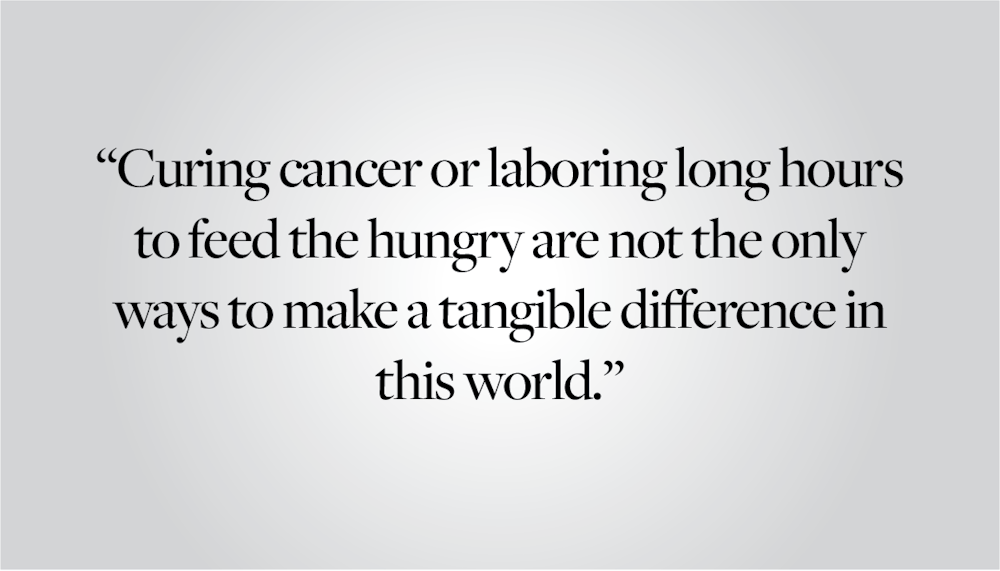The philosopher Peter Singer outlined a moral thought experiment in 1972: If you saw a child drowning in a pond, you would jump in to save them. No second thoughts, no concern for ruining your fancy clothes (or, nowadays, your phone). This scenario may seem unlikely to occur in real life, but as Singer argues, we actually encounter it daily. Implicitly, we constantly choose between spending money on material, often unnecessary things (like fancy clothing) or donating it to save people — especially children — from dying of preventable causes. They may not be drowning right in front of us, but the result is the exact same, and we have a duty to pull them out of the water. To face that moral obligation, we all should give at least 10% of our income to life-saving charities instead of spending nearly all of it on ourselves.
While Americans, who earn more than residents of nearly any other country, are somewhat charitable, we can afford to give much more. The average American only donates 2-3% of their income when a median middle class household income in the U.S. ($90,131 annually in 2020) is greater than what nearly 96% of four-person households and over 99% of people on Earth earn. Furthermore, many Brown graduates have an additional safety net in the form of a financially secure family background. Plus, an American household’s surplus money is rarely used for true necessities — the average household spends significant portions of its income on entertainment and travel. Given this financial cushion, Brown graduates — especially those who opt for high-paying careers — have the full capability to give.
The rationale behind donating consistently only becomes more compelling when we observe the good that money can do when donated consistently over time. Say you’re a Brown graduate starting out as a consultant at McKinsey & Company with a minimum base pay of around $90,000. A donation of 10% of your annual income is enough money to save two children from dying of Vitamin A deficiency, which leaves children vulnerable to infections. If you kept this up over the course of a 40-year career — during which your salary would surely increase — consistent donations could save more than 80 lives. To put this into perspective, the average doctor in the United Kingdom will — using a generous approximation — save roughly a cumulative 90 lives in their entire career. Even if your chosen career is not specifically oriented towards service or helping others, you can still do a significant amount of public good — maybe even an amount comparable to a more traditionally altruistic career. Making a donation is certainly a more passive activity than many kinds of volunteerism, but the fact is that even people who take on corporate roles can easily and meaningfully better the world.
Donating a sizable portion of one’s income is an ancient idea, but recently it has been popularized in part by philosopher Toby Ord, who has been donating 10% of his income to charity for the last 11 years. His writing and foundation have inspired thousands to pledge to donate at least 10% of their income as well. As Ord’s example shows, our own donations, especially when given publicly, can galvanize others to give, creating a domino effect of donations and saving even more lives.
Curing cancer or laboring long hours to feed the hungry are not the only ways to make a tangible difference in this world. In fact, simply by working a decent-paying job, you have more than enough at your disposal to help others on a surprisingly large scale. It’s a no-brainer: By donating a relatively small proportion of income, you can save many lives while also bettering your own.





